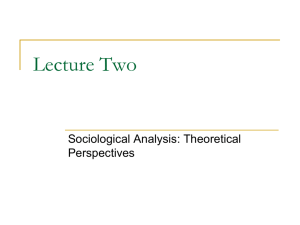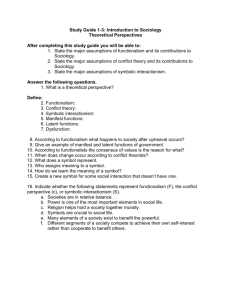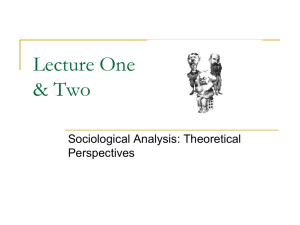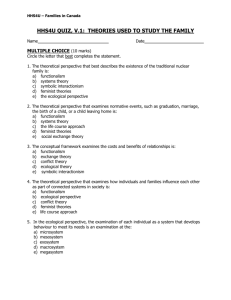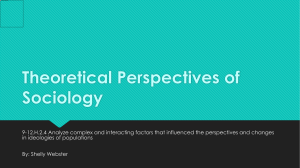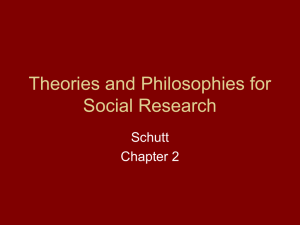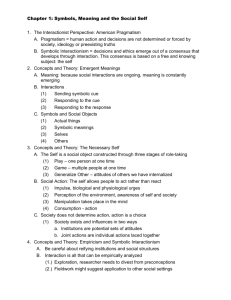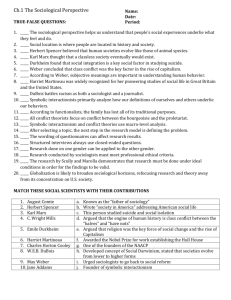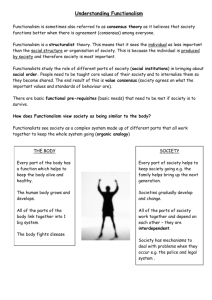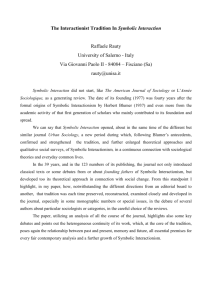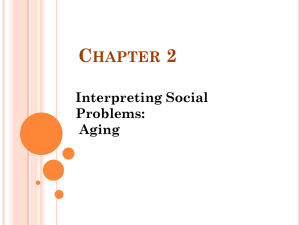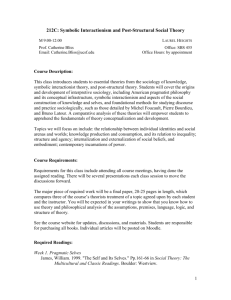Lecture Two - Sociological Analysis
advertisement
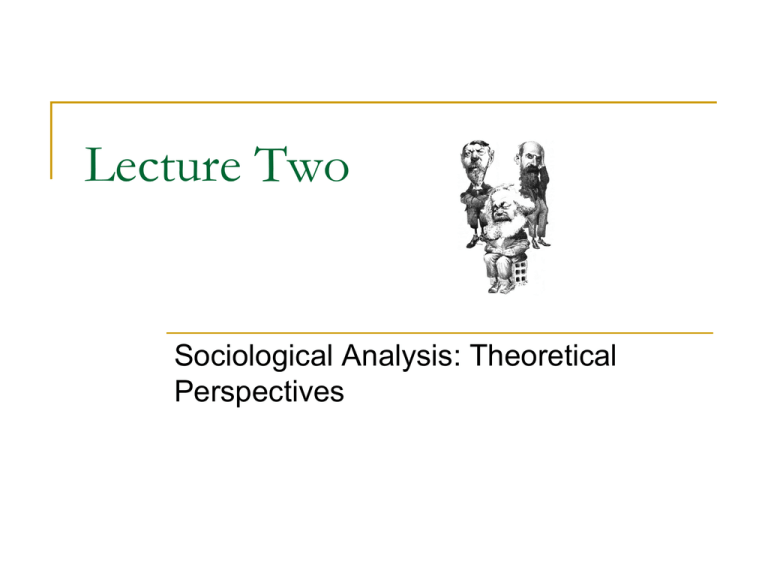
Lecture Two Sociological Analysis: Theoretical Perspectives Studying the Social World The major theoretical approaches are important to compare and contrast because they make different assumptions about the social world and have different answers Sociologists ground their research and analysis in a theoretical approach to: Ask the right questions Guides research methods Organize empirical observations and conclusions Some sociologists use ONLY one approach all the time and some use the perspective that best addresses the question at hand. Functionalism Functionalist approach believes that society works toward equilibrium and stability According to functionalism society is a system of interrelated parts – economy, family, religion, mass media, etc. Each of society’s parts function to maintain the stability of the larger system Main questions asked by functionalists: How do the institutions (parts) of society contribute to social stability and/or instability? Marxist/Conflict Theory In contrast to functionalists who focus on order and stability, the conflict approach focuses on conflict and social change. According to the conflict approach, society is based on conflict between social groups Patterns of inequality create social stability in some circumstances and social change in others Social conditions are the expression of the ongoing power struggle between groups The main question asked by the conflict approach is: Who benefits from a particular pattern or social arrangement and at whose expense? Symbolic Interactionism In contrast to functionalism and conflict theory, which assumes that people’s group membership determine their behavior (race, class, etc.), symbolic interactionism focuses on how people’s ideas/values shape their behavior Symbolic Interactionism assumes that social life is possible because people attach meaning to it. Main question asked by symbolic interactionsim is: how do individuals communicate and interact to make social life meaningful? Feminist Theory View socially constructed categories - like gender, race, and class – as key factors in the inequality that shape society Intersectionality Social interaction Social institutions Intersection of race, class, and gender Main question asked by feminist theorists is: what is the basis for inequality in society? Rational Choice Theory Instrumental (rational action) behavior is the key variable to explain social life Self-interested behavior People make rational, self-interested decisions based on the circumstances presented to them Main question asked by rational choice theorists is: how does individual self-interst shape society? Post-modernism Social life is influenced by images and symbols Reality is what we make it to be There is no history Meaning is created and constantly in flux Main question asked by rational choice theorists is: how do we make meaning in life and how are we affected by images/symbols? Putting them into practice… How do we explain the gender wage gap? Is education the great equalizer? High School Diploma: BA/BS Degree: men = $32K women = $22K (68%) men = $51K women = $36K (70%) PhD: men = $77K women $56K (72%) How do we explain the wage gap? Use the theory assigned to your group to explain the gender wage gap. Group: 1 = Structural Functionalism 2 = Conflict Theory 3 = Symbolic Interactionism 4 = Feminist Theory 5 = Rational Choice 6= Postmodernism
